Today, it’s increasingly clear that drone pilots are in demand across a wide range of sectors. Becoming a drone service provider is an increasingly profitable path, but reaching profitability takes significant effort. There is extensive training required to fly drones for these different use cases, and various certifications that need to be acquired. Pilot Institute provides a platform for exactly this training and education. Co-founded by Greg Reverdiau, the organization provides virtual classes for drone pilots (and pilots for crewed aircraft) looking for training toward certifications and other topics like photography and surveying.
This year, Pilot Institute partnered with Commercial UAV Expo, bringing some of their training to in-person environments at Commercial UAV Expo 2025 in Las Vegas while also exhibiting in their booth on the Exhibit Hall floor and hosting a track of content at the Pilot Hub. Reverdiau told Commercial UAV News that he had been to the event in the past and noted an opportunity for his organization to add a training element to the event.
“We know we have people coming from all over to the country [to Commercial UAV Expo] to see what the latest and greatest is,” Reverdiau told CUAV News. “Why not take the opportunity to add a learning component to it?”
This thought process led to this partnership, with Pilot Institute hosting continuations of their online learning, providing other in-person educational opportunities, and hosting a variety of presentations and panel discussions as part of the conference programming. Reverdiau noted that one of the most successful elements of this partnership was being able to get many of their members together in person. The organization is working on making this a more regular thing, building a new facility in Flagstaff, Arizona, and this event showed that physically getting together in the same room was a boon for their members.
“[Meeting in person] was a great thing,” Reverdiau said. “The feedback was really good. I always asked the folks after every session I had, ‘Was this valuable to you?’ And everybody, without hesitation, said, ‘Yes, this was absolutely valuable.’”
Reverdiau had a few takeaways that stuck with him from both the Pilot Institute-specific pieces of the show and Commercial UAV Expo 2025 as a whole, starting with the demographics of who was actually at the event. One of the things that attracted Pilot Institute to the partnership from the start, he noted, was the presence of actual pilots among attendees. During one session, he asked informally who was a pilot, and said that the vast majority of the people in the crowd were pilots who have been flying for at least a few years at this point, as opposed to executives. Of course, given the number of small businesses represented at this event, many people are both the field pilots and the CEO.
In addition to the profile, Reverdiau noted that regulatory matters once again took center stage in many of the conversations. This comes as little surprise, of course, given that this year’s Commercial UAV Expo took place at roughly the halfway point for the commenting period on the Part 108 NPRM. Reverdiau took part in multiple sessions on the topic, including a roundtable discussion open to all attendees, and noted some common themes in the discussions. While there was plenty of excitement that this long-awaited regulation finally appears to be moving forward, Reverdiau reported a lot of confusion around the proposed rule.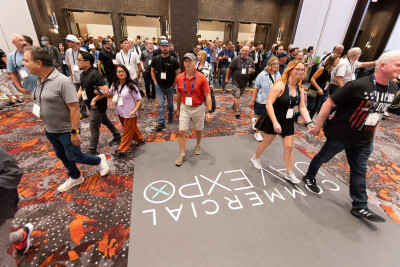
“The one thing that I noticed is there was a lot of confusion around what is actually in the document,” he told CUAV News. “It’s a very complex proposal, and I think people are afraid of digging into this gigantic document that is completely novel and completely different.”
He reiterated that there was excitement around the fact that the FAA is finally making regulations around BVLOS operations, but noted another theme of frustration around the focus on autonomous operations. As noted above, many of the attendees for the event as a whole – and particularly for the Pilot Institute sessions and classes – are pilots who fly these aircraft manually. The NPRM doesn’t have much focus on what happens for these manual flights, leading to confusion and frustration in many of the conversations about the NPRM.
Along with the Part 108 discussions, Reverdiau said the other big topic of conversation was the looming uncertainty around foreign-made drones, specifically those manufactured in China. This is a major theme across the entire industry, as DJI remains the leading manufacturer for many industries represented at Commercial UAV Expo. The potential of a de facto ban on these drones could upend many companies and organizations in the space. Overall, Reverdiau described “opposite sentiments” with these two topics, with general excitement around the Part 108 NPRM being contrasted with unease about potential bans on Chinese-made drones.
Overall, Reverdiau described Pilot Institute’s first year as a partner as a success, especially in connecting directly with pilots and entrepreneurs.
“The feedback was awesome,” he said. “The people who go to this conference, some of them are brand new to the industry, but a lot of them already have either an idea for a business or they have a business already that they’re running, and they want to take it to the next level. I think this format was perfect for those folks.


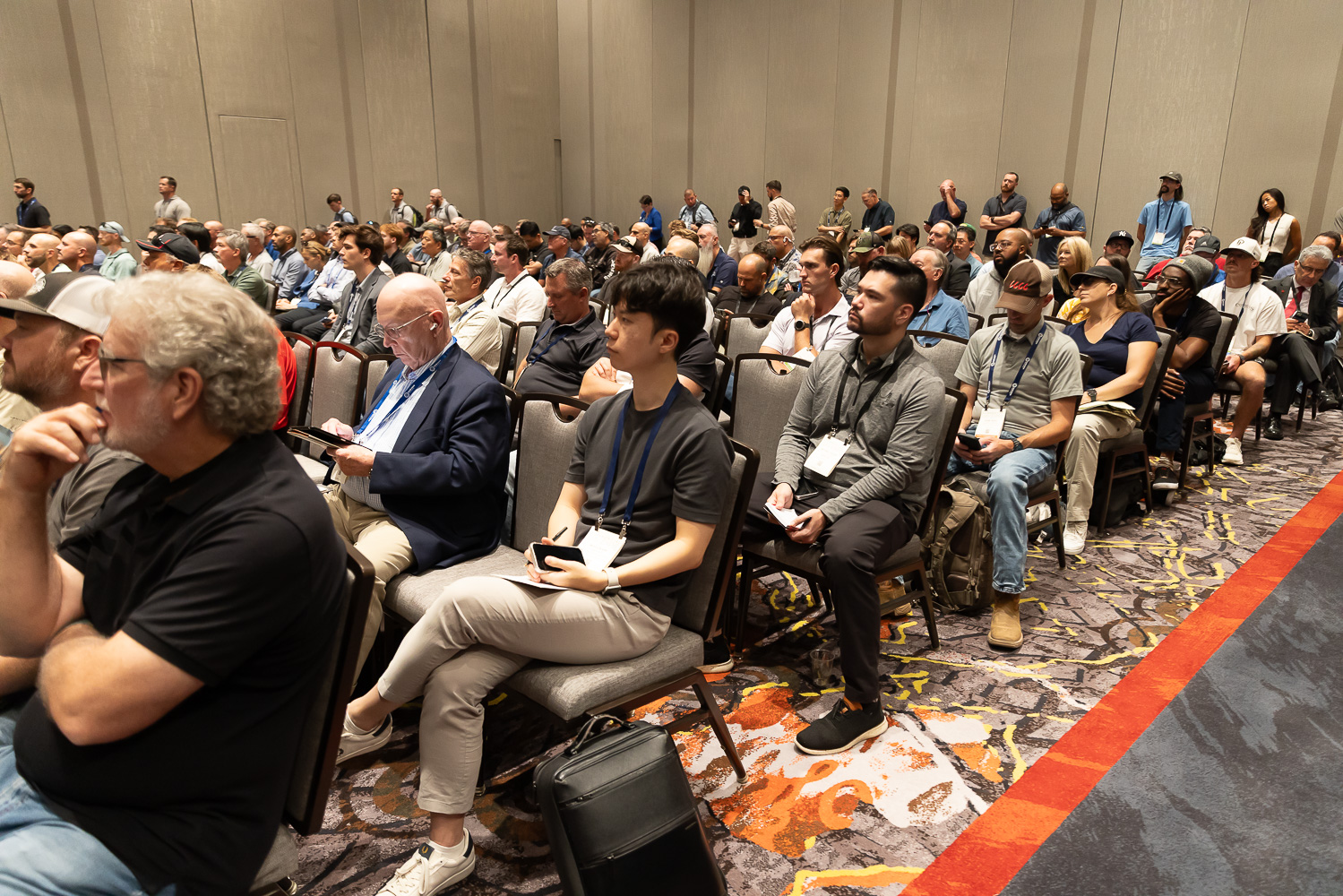

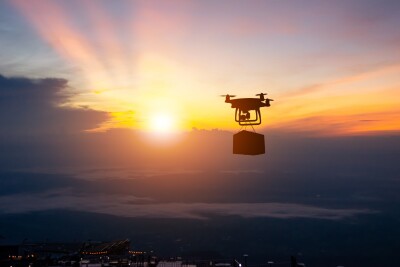
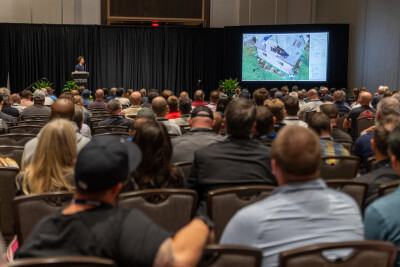
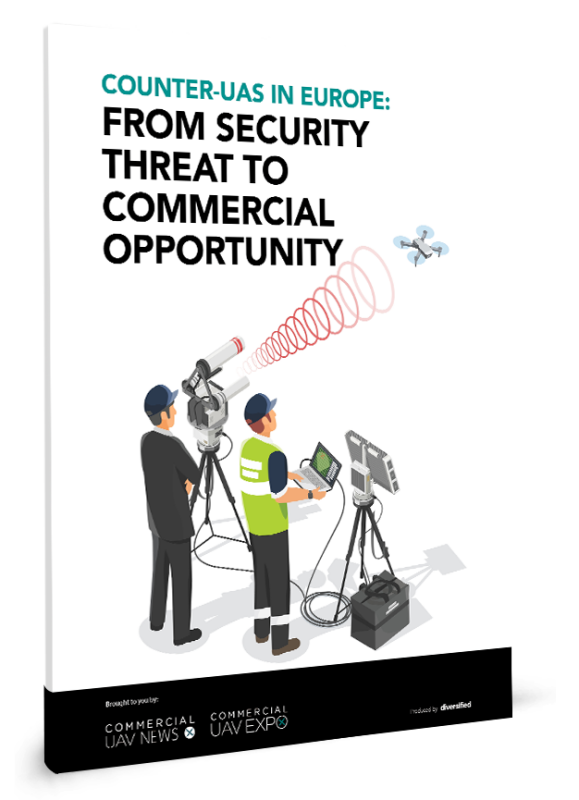







Comments